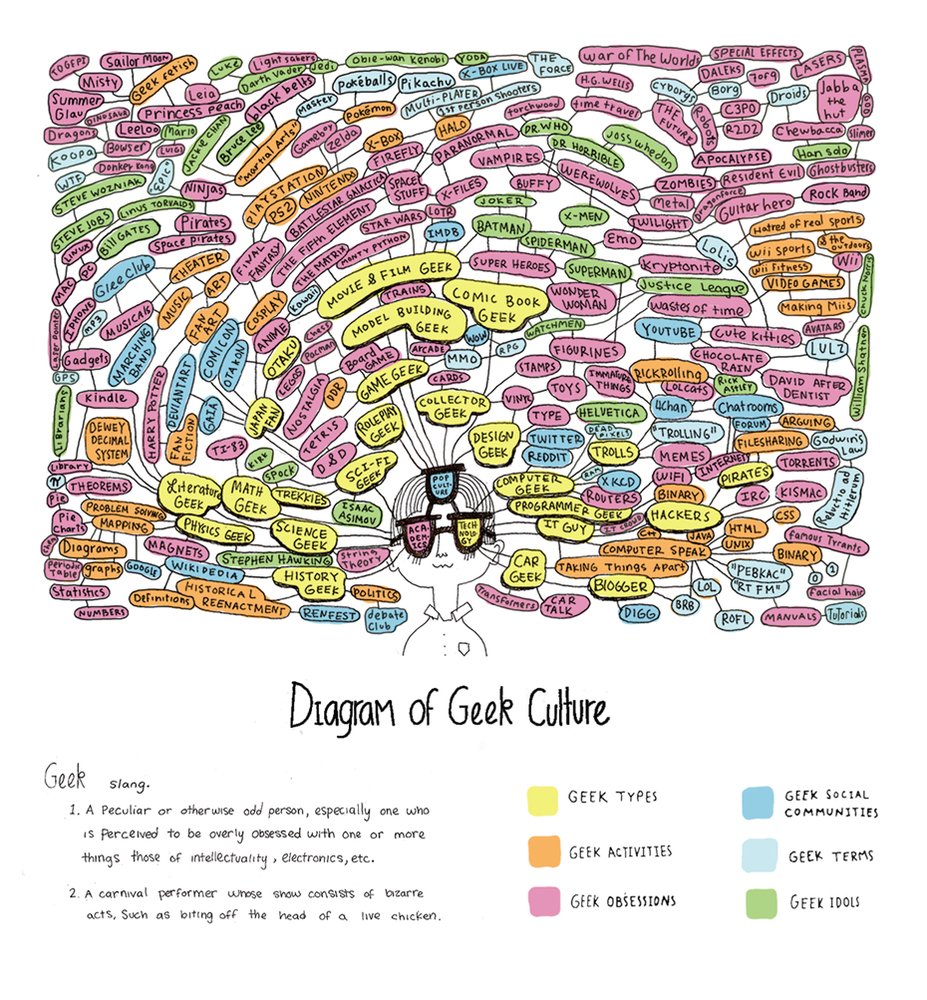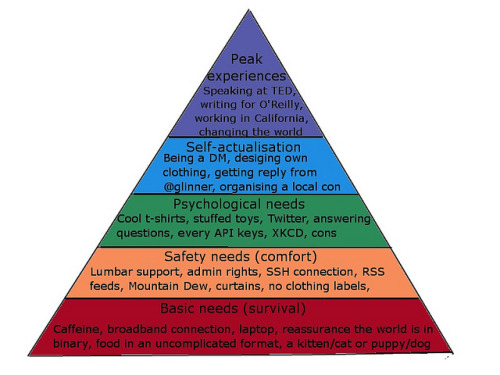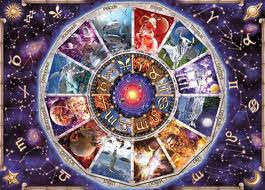A recent Kaplan survey found that admissions departments at 80% of US top colleges “visit potential students’ online Facebook profiles during their recruiting process.” The obvious advice is to keep your Facebook profile private.
Read more here: Report: 80% of College Admissions Departments Check Applicants’ Facebook Pages | Geekosystem
The meta-geek blog focuses on geek related topics, geek interests, and geek culture - such as geek identity, technology, fantasy, and science fiction.
Friday, February 25, 2011
Thursday, February 24, 2011
Monday, February 21, 2011
Geek Hierarchy Chart
Funny geek hierarchy chart: Which geeks consider themselves less geeky than other geeks.
You might also be interested in the Geek Maslow pyramid of needs and the Evolution of Geek.
Geek Diagram

[Source: BCO | Via Geeks are Sexy]
You might also be interested in the Geek Maslow pyramid of needs and the Evolution of Geek.
 |
| NY Times Geek Flowchart (Click to Enlarge) |

[Source: BCO | Via Geeks are Sexy]
Thursday, February 17, 2011
Map of the Fantasy Worlds
Cartoonist Dan Meth has completed what he regards as the complete map of the Fantasy Universe. I wonder how Dan Meth decided that Wonderland shares borders with Middle earth.
Found here: Map of the Fantasy World | Geekosystem
Found here: Map of the Fantasy World | Geekosystem
Sunday, February 13, 2011
Wednesday, February 9, 2011
Robots Share Knowledge to Learn from Experience
Dr. Markus Waibel of the Swiss Federal Institute of Technology in Zurich (ETH) believes that what’s holding robots back is their inability to send and receive new information over the internet like humans do. To combat this problem, and hopefully propel robot development in the process, the Swiss team are developing RoboEarth — a repository of data that robots can use to learn new tasks and expand through their own experiences. At its core, RoboEarth is a World Wide Web for robots: a giant network and database repository where robots can share information and learn from each other about their behavior and their environment. RoboEarth is part of the Cognitive Systems and Robotics Initiative from the European Union Seventh Framework Programme.
Monday, February 7, 2011
The Human Radio Bubble in the Milky Way
The first AM radio broadcast was on Christmas Eve, 1906, and the opening ceremony of the 1936 Olympics is regarded as the first video signal powerful enough to be carried into space.
How far did human-generated radio and video signals travel since then? Our radio bubble is about 200 light years (the diameter of the small blue dot in the enlarged section below). Compared to the vast size of the Milky Way (which is just one of many galaxies in the universe), our own presence seems rather insignificant.
[Click on picture to see it full size.]
Read more here: The Extent of Human Radio Broadcasts in the Milky Way | Geekosystem
How far did human-generated radio and video signals travel since then? Our radio bubble is about 200 light years (the diameter of the small blue dot in the enlarged section below). Compared to the vast size of the Milky Way (which is just one of many galaxies in the universe), our own presence seems rather insignificant.
[Click on picture to see it full size.]
Read more here: The Extent of Human Radio Broadcasts in the Milky Way | Geekosystem
Saturday, February 5, 2011
Indian Supreme Court declares Astrology a Science
This incidence reflects the struggle India finds itself in: Establishing India as an urban technology and science power, while large parts of the population are strongly religious and believe in astrology (including Supreme Court judges).
Read more here: Short Sharp Science: Indian court considers astrology a science
Does the Internet make children more gullible?
Professor Donald Leu, University of Connecticut, and colleagues showed teenagers a fictional website about a "tree octopus" and many took it for fact. The authors of the study conclude that schools need to teach students how to critically evaluate the trustworthiness of internet ressources.
The question arises how do you effectively judge the trustworthiness of a website? Do you trust information because it's being presented by a major website (for example the New York Times or BBC)? Do you trust a site that has a professional layout? To what degree can you trust information on Wikipedia? How do you find out about hidden agendas behind certain websites (for example pharmaceutical companies which host medical information websites)?
Video - Breaking News Videos from CNN.com
Subscribe to:
Posts (Atom)








